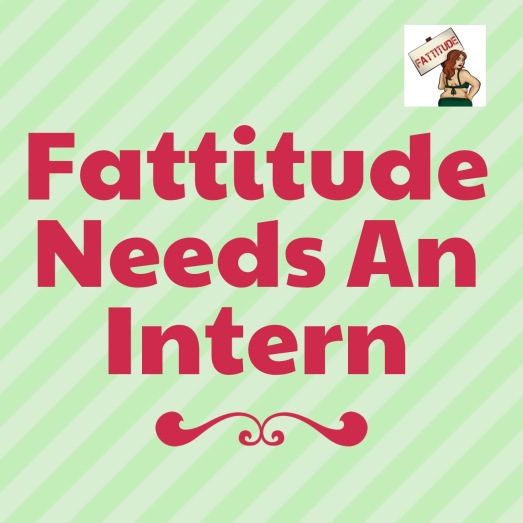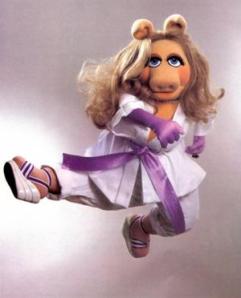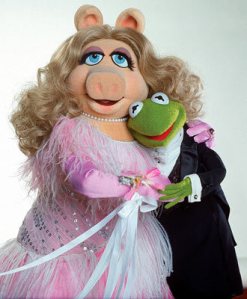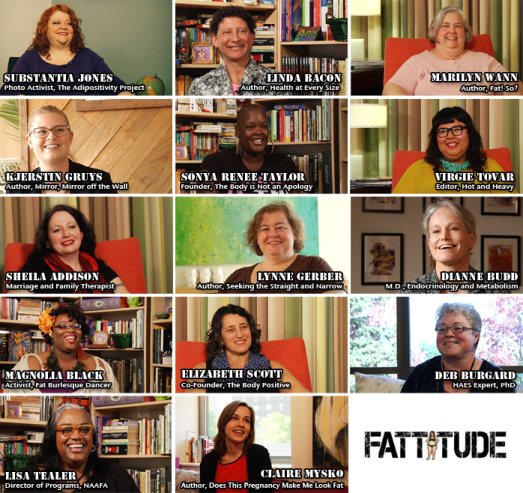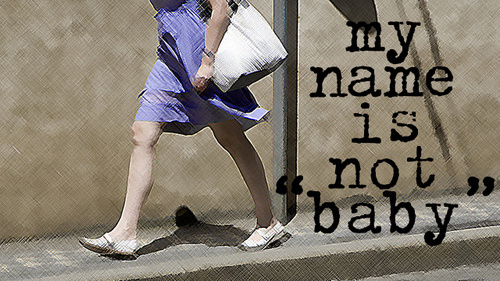I have recently been reminded that even when we “get” it, even when we are 100% on board with the struggle to undo our culture’s fat-hating tendencies, we can still easily slip into patterns that understand fat as negative and thin as positive.
Some of you may know me well enough to know that fighting sizeism is basically my main gig. I write about the fight for fat rights a lot and I’m making a movie about it, so as you can imagine my dinner table conversation is pretty saturated with all kinds of fat-positive chatter and discussion of why this or that is fat shaming.
A side effect of my dedication is that my husband has become ridiculously informed about the state of fat hate in our culture. He can explain to you why he feels we should reclaim the word “fat” and critically analyze scenes from any number of popular references that demean the fat body. He knows the names of people like Marilyn Wann, Virgie Tovar and Tess Munster. Honestly, he could and has handled spats with many a fat-hating and health-concern trolls. If you asked me if he was onboard with the work I do and the work other fat activists do, I would say, “Yes. Absolutely. 1,000%”

And yet, these two things happened recently, both in the same week — and after getting his permission — I want to share them with you.
First, me and my hubby were having dinner with a friend who we haven’t see in a while. The friend tells us that another friend is getting divorced. She left him. He’s sad. The conversation is filled with placations — “Oh, that’s sad.” “Yes, very sad.” “They seemed happy.” “Yes, they did.” It’s not so interesting. Then my husband says, “I saw him on Facebook recently. He looks great, healthy.”
“Really,” I reply genuinely. “That’s good. Has he been exercising or something?” I ask.
“I don’t know,” my husband says.
Admittedly, I’m a little slow, but it starts to dawn on me that something about this off-handed comment is suspect. “Why did you think he looked great and healthy?” I ask.
“He just did,” he shrugged. “In the picture he looked really thin.’
As expected, “OMG. Really?? Are you really standing here telling me that you think he’s healthy because he’s thin. You’re married to a fat activist. Really? Did it ever occur to you that his wife left him and maybe he’s depressed and not eating? Or something equally unhealthy.”
He rolled his eyes for a brief second but then quickly conceded that I was right.

A couple of day later there was another incident. But before I can explain what happened I have to tell you that I have a very sweet, big, fat cat who loves to cuddle. He sleeps on my head and pretty much follows me wherever I go. His name is Oliver — Ollie to those who love him. As I mentioned, he is a fatty. I often tell him that he takes after me. About a week after the thin/healthy incident, I’m in the kitchen; my husband is gathering his things to head off to work and I am cooing/mewing with this delicious cat of mine. The conversation went something like this:
“Meow.”
“Good morning to you to Ollie-bear.”
“Meow, meow.”
“That’s right you are my big, fat boy and I love you.”
Despite himself, my husband got offended. “Don’t do that,” he said.
“Do what?” I asked, confused.
“Call him fat.”
“He is fat. He’s a perfect fatty boy.”
Lightning flashed. “Sorry,” he said, and he was out the door and off to work. Later that evening when my husband returned home he brought up both incidents. I am paraphrasing — but basically what he said was that he was really sorry. He’d been thinking all day about the thin/healthy moment and the fat cat moment and how they proved that even when you want to shift your perspective and shake off the fat-hating lessons the culture has drilled into your brain, it is still easy to slip into the old familiar patterns.
And it is.
Clearing the mind of all the bullshit we’ve been taught to think about fat and fatness is a hefty endeavor. Like many well-intentioned spring cleanings, sometimes you get one closet done and save the other one for another day. It will happen though; one day you’ll clear out all the old roller skates and photo albums, wipe down the shelves and vacuum, and then there will just be this gorgeous empty space where you can house all the new amazing body positive stuff you’re acquiring.*
One day, you just break the pattern and the negative stuff you connect to fatness just doesn’t come up anymore. I guess the moral of this story is that change takes time. We have to be patient, and keep fighting the good fight.
*Metaphors aside, if you’re just starting your collection, I recommend Fat! So? by Marilyn Wann and if you’ve been around a while, did you read What’s Wrong With Fat? by Abgail Seguy?

